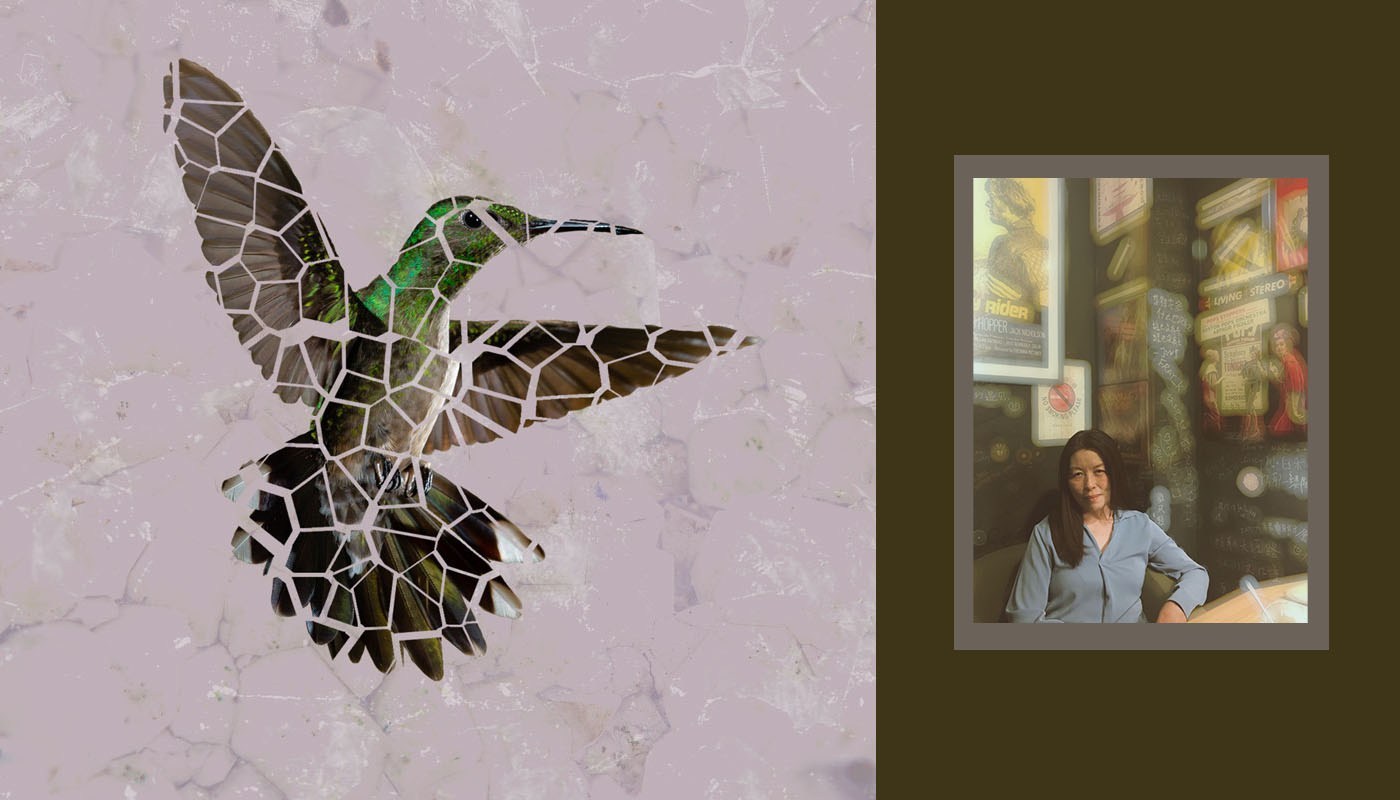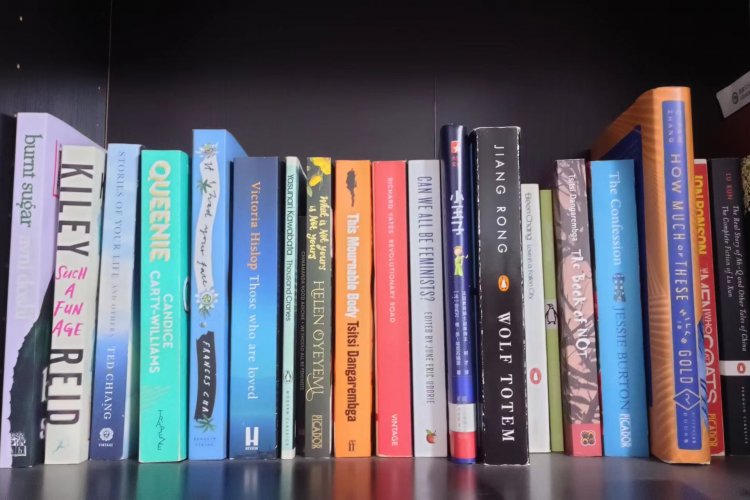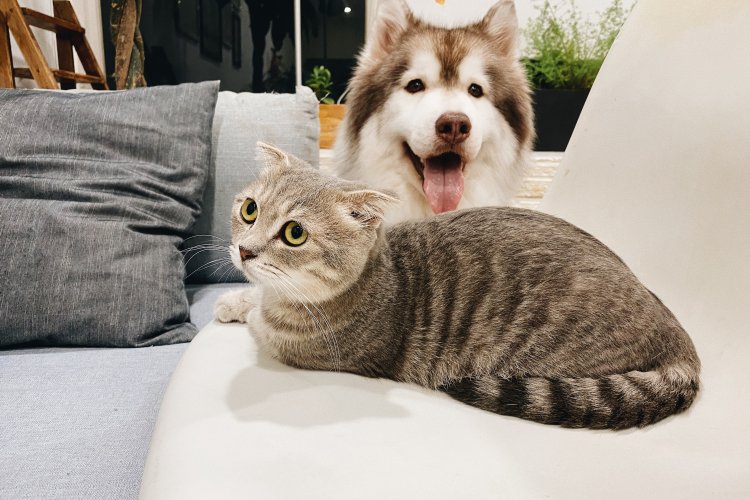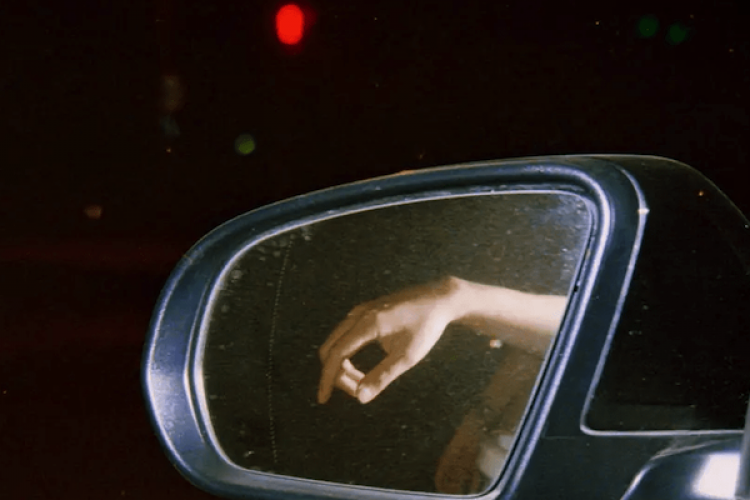On the Importance of Isolation With Beijing-Based Poet Zuo Fei
Beijing-based Zuo Fei (昨非) talks about becoming a poet, writing as a kind of hell, and translating foreign poetry into Chinese on her popular WeChat blog Selected Foreign Poetry (ID: 外国诗歌精选).
March 2020, Wudaoying Hutong
Deva Eveland: How did you become a poet?
Zuo Fei: I have always been interested in poetry, but for a lot of reasons I just gave it up. I finally wrote my first poem in English when I was a visiting scholar at Texas A&M. Not the one in Houston, but a satellite campus, probably one hour’s drive from Dallas. It was in a small town called Commerce, Texas, with only a few thousand people. So, I was pretty isolated. I bought a huge book called the Norton Anthology, and started to read a lot of poetry and fiction in English.
DE: It’s interesting that your first serious attempt at poetry was also in English.
ZF: Yes, I thought I could express what was in my mind better in English. In that first poem, the first line was “Dear Stranger.” Because it was my first experience of living in a foreign country. At first, I felt quite, quite isolated, and I needed to talk to somebody. So I started to express in poetry. First, I wrote one poem. And then dozens of poems in English. At the same time, I was reading poetry in English. I made a big decision that from then on, I should devote myself to poetry as the most important thing.
DE: Could you describe your writing process? Writers often have rituals about how, when, and where they write.
ZF: The whole ritual is like, you’ve got this idea in your mind. And the idea will be there for a couple of days, sometimes a couple of weeks. It’s like it’s always there. You’re haunted. If you cannot get it out, you feel really bad. You cannot eat. You cannot sleep. And then finally one day you sit down and it just comes out. For me, it’s like a love affair. It’s difficult at the very beginning. You know what you want to say. But the first line of the first stanza is always wrong. So you have to be very careful. No interruption, no other business or you’ll get distracted. Until finally at 12am or even 2am (usually I stay up late) you’re like, damn it, I’ve got it! I like to put down my lines on a real piece of paper with a real pen. I like to stick to a single poem until it’s finished because I want to get it done as soon as possible. The next day those ideas will be gone.
DE: Do you do much revision? Or do you just write and write and write until the thing you want comes out?
ZF: I revise very little. But I wait sometimes months for something to come to me, and then it just floods me. So I get really exhausted by doing that. I have to get this poem finished and then I work very late into the night. It’s like hell, the whole experience, kind of what Dylan Thomas would do. But if you do not get it down, you will feel even worse. So which way are you going to go?
DE: And is that kind of experience of hell important for the writing process? Like if it’s too easy the poem is bland?
ZF: Yes, I don’t know what writing instincts you have, but for me it’s not something very pleasant.
DE: What are you working on now? Are the weird circumstances we are in helping you write? Not helping you write? Corona Virus, the social isolation... how is that affecting your writing process?
ZF: Well, I’m not going to write a poem about the coronavirus. Because other people have done it already. Too many people actually. To be honest, most poems about the coronavirus are not good because they are too immediate.
DE: Yeah.
ZF: They are like breaking news. That is something I don’t like.
DE: Breaking news poetry.
ZF: Oh! I actually wrote four short stories about the coronavirus.
DE: Really? I didn’t know you even wrote fiction.
ZF: Yeah, one is in the far future. Like in the year 9021. One is current, like 2019. And one is 1902. And the last one is in, I don’t know, 1290. In the Middle Ages. Even if I’m writing a story, I focus more on the imaginary. I really liked writing the futuristic one.
DE: Can you talk about your poetry blog on WeChat?
ZF: It’s a platform to introduce foreign poetry to Chinese readers. I’ve been doing that for about three years. I read poems in English. I also talk about important poets whose poems have been put into English.
DE: Do you translate poetry into Chinese for your readers? Or do you just introduce it and describe?
ZF: Both. I do a lot of translation. But I cannot do any translation unless I’m totally absorbed by the poet.
DE: If you don’t feel it, you can’t.
ZF: Uh-huh.
DE: If I can ask, what kind of poetry do your readers seem to respond to most?
ZF: For Chinese readers, I don’t know why, the old generation focuses only on certain Western poets. For example, when it comes to modern poetry, I think of Rilke, Yates, and TS Elliot. Just those three. I’m not very happy about this situation, so to introduce as many foreign poets as possible, especially contemporary poets, that’s part of my mission.
Click here to read Zuo Fei’s poems featured in the May 2020 edition of Spittoon Monthly, along with another section of this interview.
READ: "My Days Have Become an Endless Loop"
This article is provided by our content partners Spittoon Collective. You can read more content just like this from Beijing's creative literary minds via their website here.
Image: Spittoon







